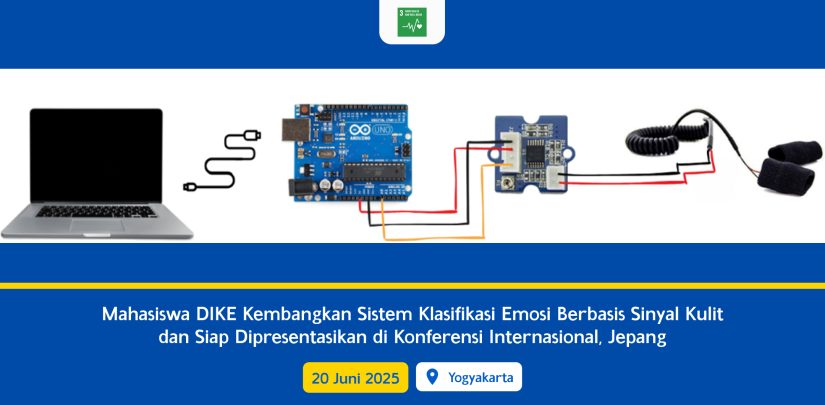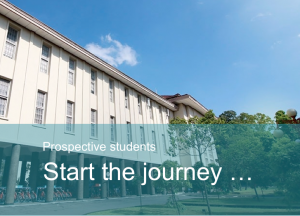
Yogyakarta, 20 Juni 2025 – Anisa Andri Yani Sinaga, mahasiswi Departemen Ilmu Komputer dan Elektronika (DIKE) FMIPA UGM, berhasil mengembangkan sistem klasifikasi emosi berbasis sinyal elektrodermal atau Galvanic Skin Response (GSR) dengan akurasi tinggi. Di bawah bimbingan Prof. Sri Hartati, inovasi ini dirancang untuk membantu tenaga medis dalam mengidentifikasi emosi pasien secara objektif, sebagai respons terhadap meningkatnya tantangan kesehatan mental di Indonesia. Berdasarkan data Riskesdas, sekitar 9,8% penduduk Indonesia berusia di atas 15 tahun mengalami gangguan mental emosional. Hal ini menjadi latar belakang perlunya perangkat bantu yang akurat dan tidak bergantung pada observasi subjektif seperti ekspresi wajah atau intonasi suara, terutama bagi pasien yang sulit mengekspresikan emosi secara langsung.

Dalam penelitiannya, Anisa membangun model klasifikasi berbasis Support Vector Machine (SVM), dengan tahapan pemrosesan yang mencakup akuisisi sinyal, pembersihan noise, normalisasi, serta ekstraksi fitur statistik seperti nilai rata-rata, maksimum, minimum, dan kurtosis. Model SVM yang digunakan mengaplikasikan kernel polinomial dengan parameter optimal (C=50, gamma=5, degree=2), dan berhasil mencapai akurasi pelatihan sebesar 96,9% serta akurasi pengujian sebesar 92%.
Pola sinyal yang dianalisis menunjukkan karakteristik unik dari tiap emosi. Emosi bahagia ditandai dengan fluktuasi stabil dan tingkat arousal sedang. Emosi marah menunjukkan lonjakan tajam akibat peningkatan aktivitas sistem saraf simpatik, sementara emosi sedih cenderung menghasilkan pola sinyal yang lebih halus karena dominasi sistem saraf parasimpatik. Evaluasi performa dilakukan menggunakan metrik akurasi, presisi, recall, dan F1-score, yang menunjukkan hasil memuaskan di hampir seluruh kategori. Meski demikian, masih terdapat tantangan dalam membedakan emosi marah dan sedih akibat kesamaan pola pada sebagian sampel.

Untuk pengembangan lebih lanjut, Anisa merekomendasikan perluasan jumlah partisipan, penambahan data dari sinyal fisiologis lain seperti detak jantung dan EEG, serta eksplorasi pendekatan deep learning seperti Long Short-Term Memory (LSTM) untuk mendeteksi pola temporal secara lebih mendalam.
Penelitian ini akan dipresentasikan dalam forum ilmiah International Conference on Advanced Machine Learning and Data Science (AMLDS 2025) yang akan diselenggarakan pada 19–21 Juli 2025 di Tokyo, Jepang. Teknologi yang dihasilkan tidak hanya relevan untuk dunia klinis dan psikologis, tetapi juga membuka peluang aplikasi di bidang pendidikan dan interaksi manusia-komputer berbasis emosi.
Penelitian ini juga berkontribusi terhadap pencapaian Tujuan Pembangunan Berkelanjutan (SDGs), khususnya SDG 3 tentang Kehidupan Sehat dan Sejahtera. Sistem deteksi emosi berbasis sinyal fisiologis menjadi tahap awal dalam menghadirkan layanan kesehatan mental yang lebih adaptif, akurat, dan berbasis teknologi.
Author: Lab SC Sh
Editor: Marina
#SDGs3

